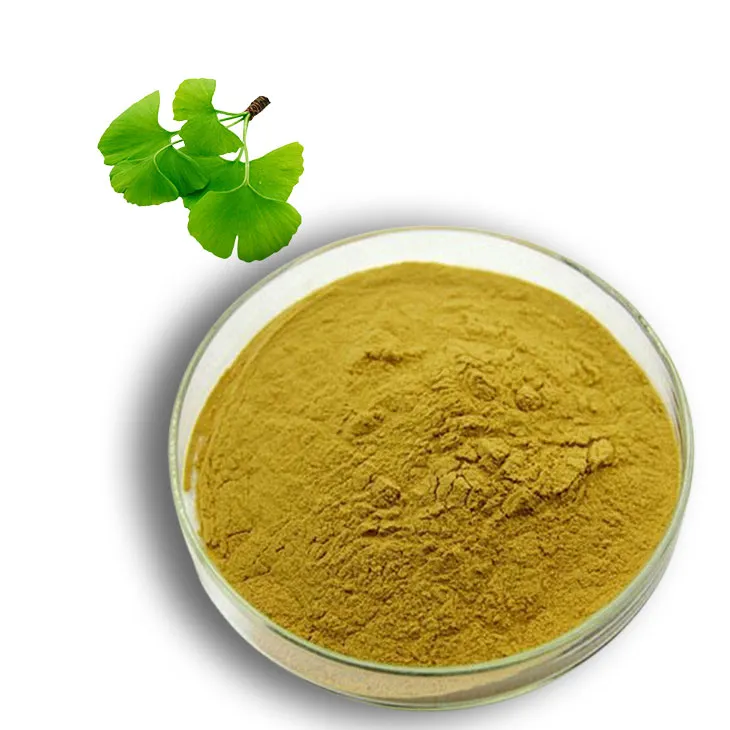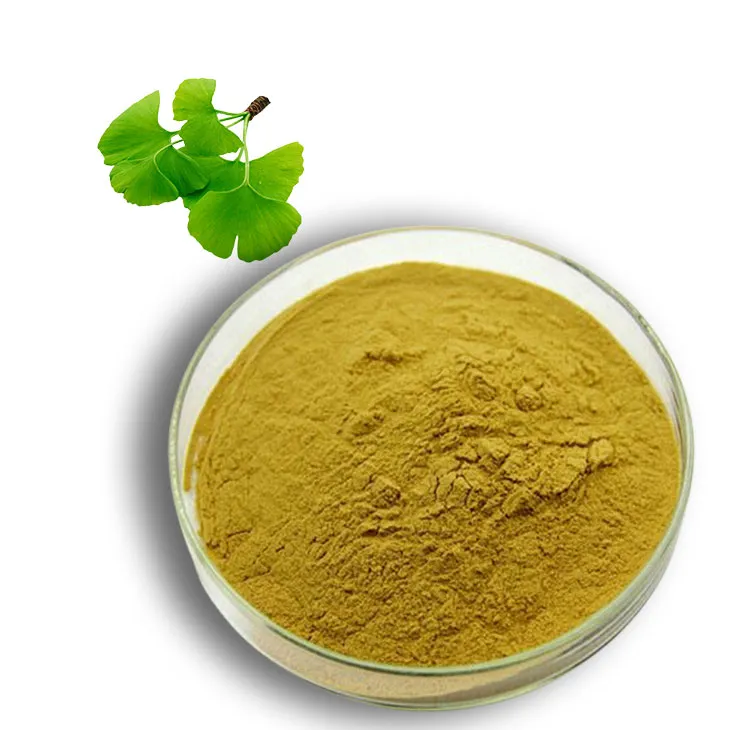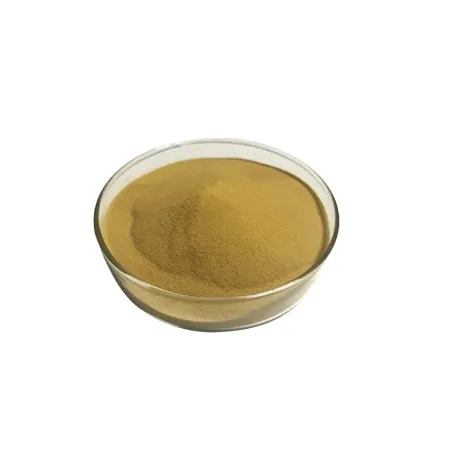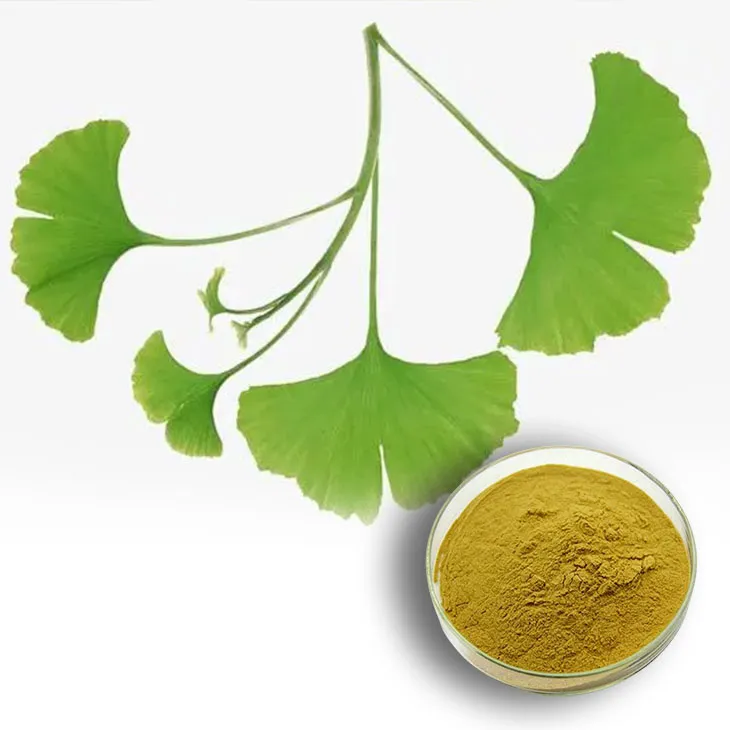- 0086-571-85302990
- sales@greenskybio.com
Can Ginkgo biloba extract reduce cholesterol?
2024-11-13

1. Introduction
Cholesterol management is a crucial aspect of maintaining good health. High cholesterol levels are associated with an increased risk of heart disease, stroke, and other cardiovascular problems. In recent years, there has been growing interest in natural remedies for cholesterol reduction, and Ginkgo biloba extract has emerged as a potential candidate. This article aims to explore whether ginkgo biloba extract can indeed lower cholesterol by delving into its chemical constituents and possible mechanisms in cholesterol management, as well as presenting research findings and real - life experiences.

2. Chemical Constituents of Ginkgo Biloba Extract
Ginkgo biloba extract is rich in various bioactive compounds. One of the most important groups is the flavonoids. These include Quercetin, kaempferol, and isorhamnetin. Flavonoids are known for their antioxidant properties, which play a role in protecting cells from damage caused by free radicals.
Another significant component is the terpenoids, specifically ginkgolides and bilobalide. Ginkgolides are diterpenoid lactones that have unique biological activities. They are believed to have an impact on blood circulation and platelet aggregation, which may be related to cholesterol management.

3. Possible Mechanisms in Cholesterol Management
3.1. Antioxidant Effects
The antioxidant properties of ginkgo biloba extract's flavonoids can help reduce oxidative stress in the body. Oxidative stress can damage the cells lining the blood vessels and lead to the formation of atherosclerotic plaques. By reducing oxidative stress, it may indirectly affect cholesterol levels. For example, when cells are less damaged, they are more likely to function properly in terms of cholesterol uptake and metabolism.
3.2. Impact on Blood Circulation
The terpenoids in ginkgo biloba extract, such as ginkgolides, can improve blood circulation. Better blood circulation can enhance the transport of lipids, including cholesterol, in the bloodstream. It may prevent the accumulation of cholesterol in the arteries by ensuring a more efficient movement of lipids to the liver for metabolism and excretion. Moreover, improved blood circulation can also reduce the risk of inflammation in the blood vessels, which is often associated with high cholesterol levels.
3.3. Influence on Lipid Metabolism
There is some evidence suggesting that ginkgo biloba extract may influence lipid metabolism at the cellular level. It could potentially affect the enzymes involved in cholesterol synthesis and breakdown. For instance, it might modulate the activity of HMG - CoA reductase, an enzyme that plays a key role in cholesterol biosynthesis. By affecting this enzyme, ginkgo biloba extract could either reduce the production of cholesterol or enhance its breakdown.

4. Research Findings
4.1. Animal Studies
Several animal studies have been conducted to investigate the effect of ginkgo biloba extract on cholesterol levels. In some rodent models, administration of ginkgo biloba extract has shown a reduction in total cholesterol and LDL - cholesterol (the "bad" cholesterol). For example, a study on rats fed a high - cholesterol diet found that those given ginkgo biloba extract had significantly lower levels of LDL - cholesterol compared to the control group. This was accompanied by an improvement in the antioxidant status of the animals, indicating a possible link between the antioxidant effects of the extract and cholesterol reduction.
However, it is important to note that animal studies have limitations. The physiology of animals is different from that of humans, and the dosages used in these studies may not be directly applicable to human consumption.
4.2. Human Clinical Trials
Human clinical trials on the effect of ginkgo biloba extract on cholesterol levels have yielded mixed results.
- Some trials have reported a modest reduction in cholesterol levels. In a small - scale study involving patients with mild hypercholesterolemia, those who took ginkgo biloba extract for a certain period showed a slight decrease in total cholesterol and LDL - cholesterol. The participants also reported an improvement in overall well - being, which could be related to the potential benefits of the extract on blood circulation.
- On the other hand, several large - scale clinical trials have failed to find a significant effect of ginkgo biloba extract on cholesterol levels. These trials often had more rigorous study designs and larger sample sizes. For example, a multi - center trial with a large number of participants did not observe any substantial changes in cholesterol levels in the group taking ginkgo biloba extract compared to the placebo group.

5. Real - Life Experiences
There are also real - life experiences and anecdotal evidence regarding the use of ginkgo biloba extract for cholesterol management.
- Some individuals claim that after taking ginkgo biloba supplements regularly, they noticed an improvement in their cholesterol levels during routine medical check - ups. These people often combine the use of ginkgo biloba extract with a healthy lifestyle, including a balanced diet and regular exercise. It is difficult to determine whether the improvement in cholesterol levels is solely due to the extract or the combined effect of lifestyle changes.
- However, there are also cases where people did not observe any change in their cholesterol levels despite taking ginkgo biloba extract. This could be due to various factors, such as individual differences in metabolism, the quality and dosage of the extract used, or underlying health conditions.
6. Efficacy, Safety, and Limitations
6.1. Efficacy
Based on the current research and real - life experiences, the efficacy of ginkgo biloba extract in lowering cholesterol remains uncertain. While some studies, especially animal studies and some small - scale human trials, suggest a potential role in cholesterol reduction, the large - scale clinical trials do not provide strong evidence for its effectiveness. It is possible that ginkgo biloba extract may have a more pronounced effect in certain subgroups of the population, such as those with mild cholesterol elevation or those with specific genetic factors, but further research is needed to confirm this.
6.2. Safety
Generally, ginkgo biloba extract is considered safe for most people when taken at recommended dosages. However, it can interact with certain medications, such as blood thinners. People taking anticoagulant or antiplatelet medications should be cautious when using ginkgo biloba extract, as it may increase the risk of bleeding. Additionally, some individuals may experience mild side effects such as headache, dizziness, or gastrointestinal discomfort.
6.3. Limitations
The limitations in studying the effect of ginkgo biloba extract on cholesterol are numerous.
- The variability in the composition of ginkgo biloba extracts available in the market makes it difficult to standardize the research. Different products may contain different amounts of the active constituents, which can affect the results.
- The lack of long - term studies is also a concern. Cholesterol management is a long - term process, and most of the existing studies have relatively short - term follow - up periods. Long - term studies are needed to determine whether ginkgo biloba extract can maintain its potential effects on cholesterol levels over time and whether there are any long - term safety issues.
7. Conclusion
In conclusion, while ginkgo biloba extract shows some potential in cholesterol management based on its chemical constituents and possible mechanisms, the evidence from research findings and real - life experiences is inconclusive. The efficacy of ginkgo biloba extract in lowering cholesterol has not been firmly established, especially in large - scale human trials. Although it is generally safe for most people at recommended dosages, there are potential safety concerns and limitations in its use. More research, particularly long - term, well - designed studies, is required to better understand the role of ginkgo biloba extract in cholesterol management and to determine whether it can be a viable option for those looking to lower their cholesterol levels.
FAQ:
1. What are the main chemical constituents in Ginkgo biloba extract relevant to cholesterol management?
The main chemical constituents in Ginkgo biloba extract relevant to cholesterol management include flavonoids and terpenoids. Flavonoids have antioxidant properties that may help prevent oxidative stress - related damage to blood vessels, which could indirectly affect cholesterol levels. Terpenoids, such as ginkgolides, may have anti - inflammatory effects. Inflammation is associated with abnormal lipid metabolism, and by reducing inflammation, they might play a role in cholesterol regulation.
2. How does Ginkgo biloba extract potentially lower cholesterol?
One possible mechanism is through its antioxidant effects. Oxidized LDL (low - density lipoprotein) cholesterol is more likely to be deposited in the arteries. Ginkgo biloba extract, with its antioxidant components, may prevent the oxidation of LDL cholesterol. Additionally, its anti - inflammatory properties could improve endothelial function. A healthy endothelium (the inner lining of blood vessels) is important for proper lipid metabolism. If the endothelium is damaged or inflamed, it can lead to abnormal cholesterol levels. By reducing inflammation and improving endothelial function, Ginkgo biloba extract may contribute to better cholesterol management.
3. Are there any clinical studies supporting the cholesterol - lowering effect of Ginkgo biloba extract?
Some clinical studies have suggested a possible association between Ginkgo biloba extract and cholesterol - lowering effects. However, the results are not entirely conclusive. Some studies have shown a modest reduction in total cholesterol or LDL cholesterol levels in participants taking Ginkgo biloba extract over a certain period. But other studies have not found a significant effect. More research with larger sample sizes and longer - term follow - up is needed to clearly establish its effectiveness in lowering cholesterol.
4. What are the safety considerations when using Ginkgo biloba extract for cholesterol management?
While Ginkgo biloba extract is generally considered safe for most people when used appropriately, there are some safety considerations. It may interact with certain medications, such as blood thinners. This could increase the risk of bleeding. Some people may also experience side effects like headache, dizziness, or gastrointestinal upset. Pregnant and breastfeeding women should avoid using it as its safety in these situations has not been established. It is important to consult a healthcare provider before starting Ginkgo biloba extract for cholesterol management, especially if you have underlying health conditions or are taking other medications.
5. How much Ginkgo biloba extract should be taken for potential cholesterol - lowering benefits?
There is no standard recommended dose for using Ginkgo biloba extract specifically for cholesterol - lowering. However, in general, typical doses range from 120 - 240 mg per day. But it's crucial to note that this is not a one - size - fits - all approach. The appropriate dose may vary depending on individual factors such as age, overall health, and the presence of other medical conditions. As always, it is advisable to consult a healthcare professional before starting any supplementation regimen.
Related literature
- The Effects of Ginkgo biloba Extract on Lipid Profiles: A Meta - analysis"
- "Ginkgo biloba and Cardiovascular Health: Cholesterol and Beyond"
- "Mechanisms of Ginkgo biloba in Cholesterol Regulation: Insights from Cellular and Animal Studies"
- ▶ Hesperidin
- ▶ citrus bioflavonoids
- ▶ plant extract
- ▶ lycopene
- ▶ Diosmin
- ▶ Grape seed extract
- ▶ Sea buckthorn Juice Powder
- ▶ Beetroot powder
- ▶ Hops Extract
- ▶ Artichoke Extract
- ▶ Reishi mushroom extract
- ▶ Astaxanthin
- ▶ Green Tea Extract
- ▶ Curcumin Extract
- ▶ Horse Chestnut Extract
- ▶ Other Problems
- ▶ Boswellia Serrata Extract
- ▶ Resveratrol Extract
- ▶ Marigold Extract
- ▶ Grape Leaf Extract
- ▶ blog3
-
High purity olive leaf extract
2024-11-13
-
Lavender oil extraction method
2024-11-13
-
100% organic virgin sea buckthorn fruit oil
2024-11-13
-
Lotus leaf extract powder factory in China
2024-11-13
-
China aged garlic extract supplier
2024-11-13
-
Deer antler extract powder manufacturer
2024-11-13
-
Saw palmetto extract vs whole herb
2024-11-13
-
Tinospora cordifolia extract
2024-11-13
-
Honeysuckle Pollen
2024-11-13
-
Wheat Germ Extract
2024-11-13
-
Black Pepper Extract
2024-11-13
-
Fig Extract
2024-11-13
-
Pueraria Lobata Extract
2024-11-13
-
Soy Extract
2024-11-13
-
Cassia Seed Extract
2024-11-13
-
Shikonin
2024-11-13
-
Sophora Flavescens Root Extract
2024-11-13





















